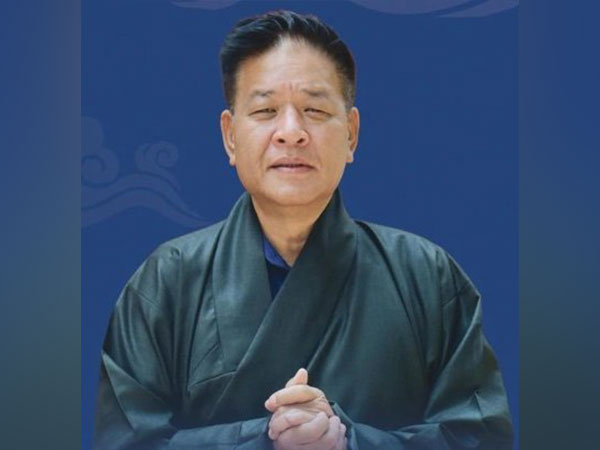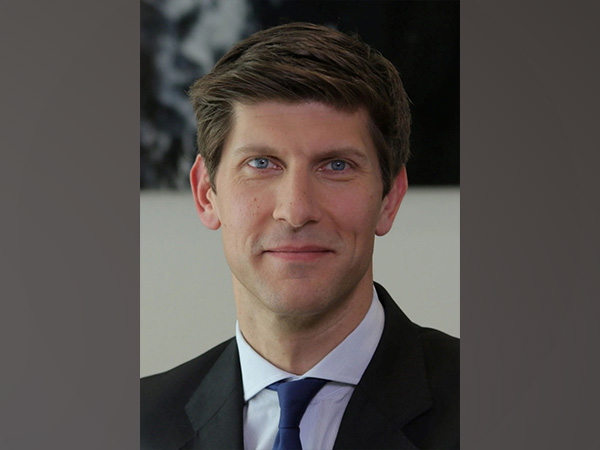
Beijing crushing Tibetans: Exiled political leader
Feb 22, 2024
Dharamshala [India], February 22: As Tibetans prepare to mark 65 years since a failed uprising against Chinese rule and questions loom over the Dalai Lama's successor, the diaspora's elected leader said Beijing is crushing his people. Tibetans on March 10 will commemorate the 1959 uprising against Chinese forces that led the future Nobel laureate - and thousands of his followers - to cross snowy Himalayan passes into neighbouring India and set up a government in exile.
But the anniversary has also put the question of who will succeed the ageing Dalai Lama into sharp focus, with the choice likely to spark a controversial geopolitical contest. The charismatic spiritual leader already stepped down as his people's political head in 2011, passing the baton of secular power to a government chosen democratically by some 130,000 Tibetans across the world.
Penpa Tsering, born in India in 1967, was elected in 2021 as its second-ever leader, or sikyong. "If you look at the policies of the Chinese government today, they're squeezing us - like a python squeezing us out of our breath slowly," Tsering told AFP in an interview at the office of the Tibetan government in exile in India. "That's why we are dying a slow death." Tibet - ruled with an iron fist by China since the 1950s - was historically an independent country, but Beijing maintains its long-held position that "Tibet is part of China".
Empires fall
Tsering readily admits the task of seeking a "resolution to the Sino-Tibetan conflict" with vastly more powerful China can seem overwhelming. But the committed Buddhist takes a long view of history. "Nothing is permanent," he said, sitting in front of a Tibetan flag in the hills above the northern Indian town of Dharamsala, where the Dalai Lama also lives. India has hosted the exiled Tibetan leadership for decades and is itself a regional rival of China - tensions between the world's two most populous countries flared after a deadly Himalayan border clash in 2020. "There have been a lot of empires in this world, and every empire has fallen," Tsering said. But as the campaign for a free Tibet drags on, many worry there is a more time-pressing issue ahead.
The 88-year-old Dalai Lama has shown no indication he faces serious health problems, but the internationally recognisable face of Tibet has dramatically reduced his once-frenetic globetrotting. "He's always very aware of his mortality... So one day he will die, that is understood, that's a matter of fact," Tsering said. "But, of course, we like to hope that there will be some resolution to the cause of Tibet during the lifetime of this Dalai Lama."
Tibetan Buddhists believe the Dalai Lama is the 14th reincarnation of the leader of an institution dating back six centuries, chosen by monks according to ancient Buddhist traditions. Many expect Beijing will name a successor itself, raising the likelihood of rival nominations for the post. When he stepped aside in favor of the elected government, the Dalai Lama said: "No recognition or acceptance should be given to a candidate chosen for political ends", singling out China.
'Control the Tibetan people'
Tsering believes the spiritual leader still has decades to live. "His Holiness keeps saying that 'I will live up to 113,'" he said. "So I chide my Chinese friends, saying: 'You are waiting for this Dalai Lama to die. "'You are not concerned about the living 14th, but you are more concerned about the yet to come 15th - because you know that if you can control the Dalai Lama, you can control the Tibetan people.'"
Tsering stressed he had no immediate concerns. "Let us see whether His Holiness the Dalai Lama outlives the Communist Party, or the Communist Party outlives His Holiness," he added. "Even this morning, His Holiness was saying: 'I have not lost one of my teeth. I'll live long'. So let's see." Tsering sometimes travels to the mountainous Indian border to stare across to the homeland he has never visited, he said, to "fulfill my emotional needs". -AFP
He does not seek full independence for Tibet, in line with the long-standing "Middle Way" policy of the Dalai Lama, who believes that pushing demands beyond autonomy would be suicidal. But the Dalai Lama has also rejected Beijing's longstanding demand that he publicly agree Tibet was historically part of China, a refusal cited by Beijing in declining dialogue with his representatives since 2010. Tsering, who campaigns for the rights of the estimated seven million Tibetans he said live under Chinese control, said "back-channel" contacts were in place with Beijing and would continue. "If there's no hope, the cause itself is lost." - AFP
Source: Kuwait Times









